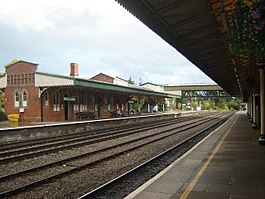
In my last blog I talked about how Anu Partanen found a purpose underlying the policies that shape Nordic societies, and single terms like capitalism and socialism are not helpful, creating as they do false dichotomies, that can obscure the bigger picture. This way of thinking I find useful in looking at all manner of issues.
Let’s take UK transport policy, and debates around the railways as an example. For most of the last 70 years the UK rail system has largely been underfunded. It is important to note that our rail system has been in decline from the days of private companies before 1948, through the years of a nationalized service and through the last couple of decades since privatisation.
The predominant view was that roads were a more modern alternative. Oil companies and car manufacturers reinforced the politicians in this. Political debate focused on whether the system should be nationalized or privatized. This to me seems a very secondary consideration. Clarifying the long term purpose of what a transport policy should look like, and what part rail should play within that framework, seems to me to be what is required. Then, and only then, does what part of it ought to be in public ownership and what part in private ownership and what other models might be appropriate for various bits of infrastructure become an important issue.
Any sensible transport policy fit for the twenty-first century ought to focus on how we can cut carbon emissions and pollution, ease congestion, increase safety and make mobility affordable and accessible for all. For many decades it has been clear that cars are not suitable for big cities, and that even smaller towns are plagued by too many of them. Rail has many advantages over road transport. Steel wheels on steel rails generate much less friction than rubber tyres on tarmac, and are therefore more energy efficient, and their longer thinner shape further adds to this advantage. Railways are the fastest way to move large numbers of people. Walking, cycling, buses and trams then need to be integrated into the rail system.
UK tragically lost many of its railway lines with the Beeching cuts. Now the government is pushing the HS2 high speed line, which seems a very poor investment. By contrast Switzerland has what is considered Europe’s best railways. They did not experience any equivalent of the Beeching cuts and have not focused on high speed rail. Their priority has been intensity of use, reliability, quality of service and safety. The UK should follow this model and invest heavily in regional railways, suburban rail and tram systems, and in the walking, cycling and buses that are all needed to make any modern city more enjoyable and pleasant to live in. We could also follow Estonia and Luxembourg and make some or all public transport free.
Cars of course will have a role to play, but with excellent walking, cycling and public transport, that role ought to decline, and it would be good to see individual ownership largely replaced by car sharing clubs for those journeys when a car really is the best option. So on to who should own what. The Swiss rail system is a Special Corporation whose shares are owned by the federal government and the cantons. If regional and county councils had a stake in UK rail we might have better provision across the whole country. The cars in our car sharing club are owned collectively by a group of forty or so households within our local community. In Germany the municipal Stadwerke own lots of well functioning infrastructure. There are many possible systems of ownership, and the unregulated free market and the centralized state monopoly may be the two least helpful starting points for thinking about the best future of our infrastructure.
